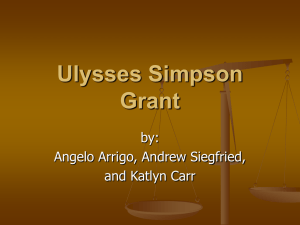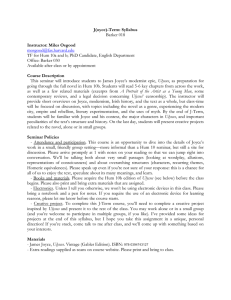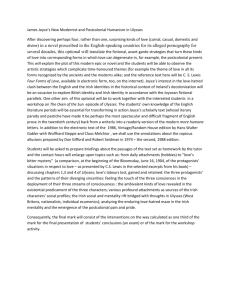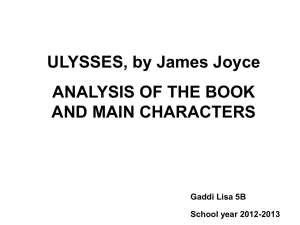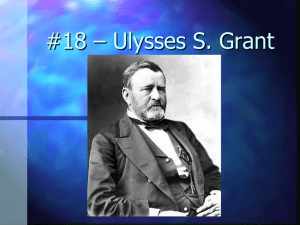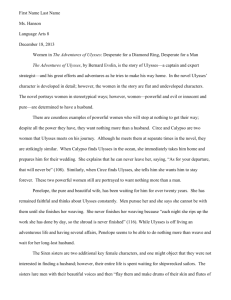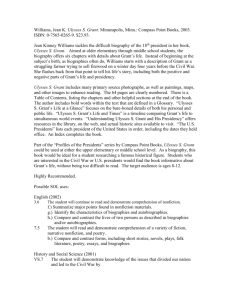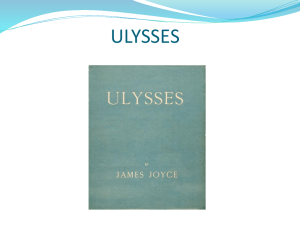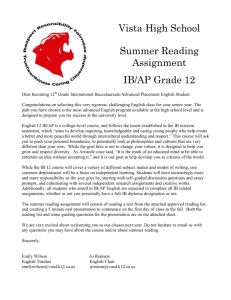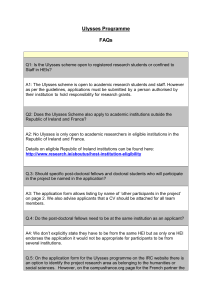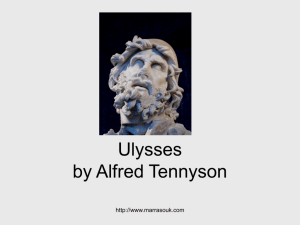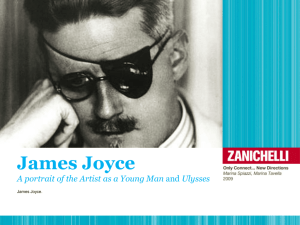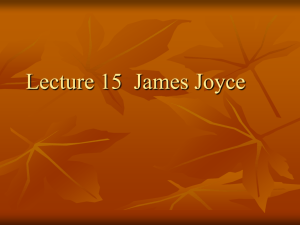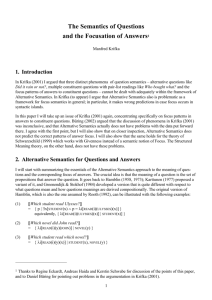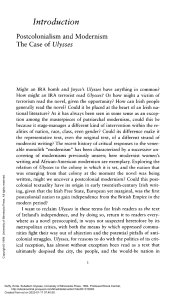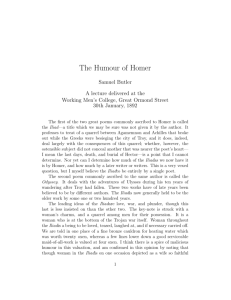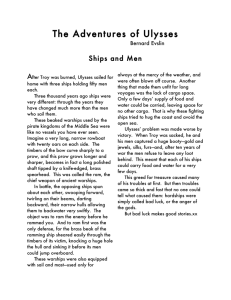dissertation abstract Proquest THE PLAY OF MUSEMENT IN JAMES
advertisement
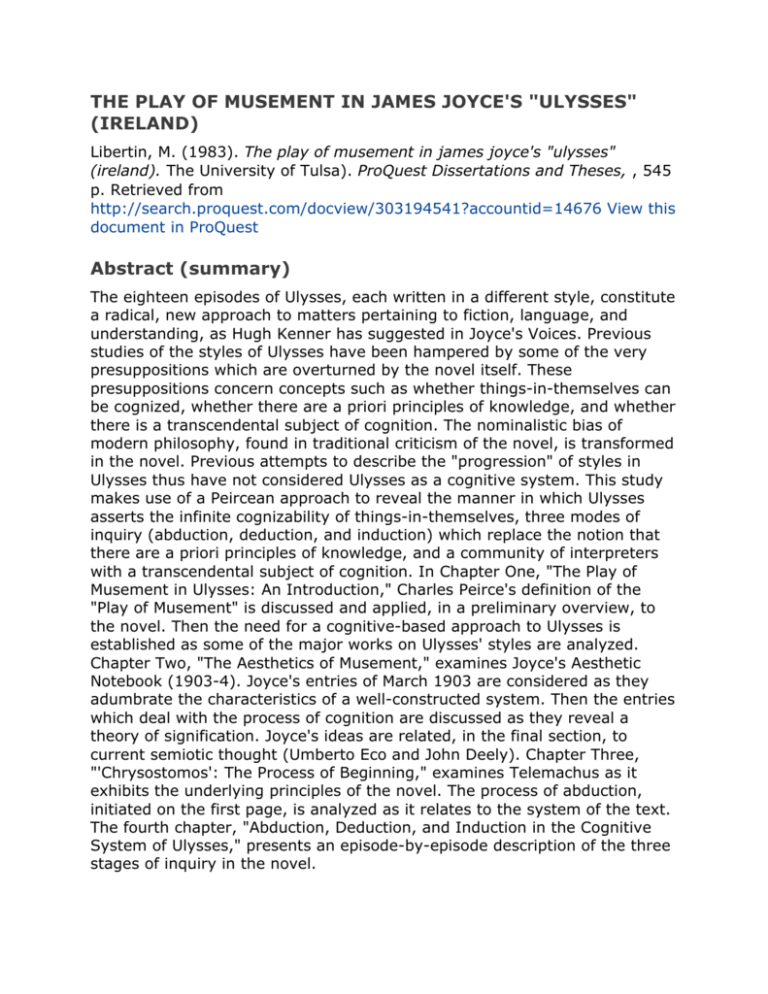
THE PLAY OF MUSEMENT IN JAMES JOYCE'S "ULYSSES" (IRELAND) Libertin, M. (1983). The play of musement in james joyce's "ulysses" (ireland). The University of Tulsa). ProQuest Dissertations and Theses, , 545 p. Retrieved from http://search.proquest.com/docview/303194541?accountid=14676 View this document in ProQuest Abstract (summary) The eighteen episodes of Ulysses, each written in a different style, constitute a radical, new approach to matters pertaining to fiction, language, and understanding, as Hugh Kenner has suggested in Joyce's Voices. Previous studies of the styles of Ulysses have been hampered by some of the very presuppositions which are overturned by the novel itself. These presuppositions concern concepts such as whether things-in-themselves can be cognized, whether there are a priori principles of knowledge, and whether there is a transcendental subject of cognition. The nominalistic bias of modern philosophy, found in traditional criticism of the novel, is transformed in the novel. Previous attempts to describe the "progression" of styles in Ulysses thus have not considered Ulysses as a cognitive system. This study makes use of a Peircean approach to reveal the manner in which Ulysses asserts the infinite cognizability of things-in-themselves, three modes of inquiry (abduction, deduction, and induction) which replace the notion that there are a priori principles of knowledge, and a community of interpreters with a transcendental subject of cognition. In Chapter One, "The Play of Musement in Ulysses: An Introduction," Charles Peirce's definition of the "Play of Musement" is discussed and applied, in a preliminary overview, to the novel. Then the need for a cognitive-based approach to Ulysses is established as some of the major works on Ulysses' styles are analyzed. Chapter Two, "The Aesthetics of Musement," examines Joyce's Aesthetic Notebook (1903-4). Joyce's entries of March 1903 are considered as they adumbrate the characteristics of a well-constructed system. Then the entries which deal with the process of cognition are discussed as they reveal a theory of signification. Joyce's ideas are related, in the final section, to current semiotic thought (Umberto Eco and John Deely). Chapter Three, "'Chrysostomos': The Process of Beginning," examines Telemachus as it exhibits the underlying principles of the novel. The process of abduction, initiated on the first page, is analyzed as it relates to the system of the text. The fourth chapter, "Abduction, Deduction, and Induction in the Cognitive System of Ulysses," presents an episode-by-episode description of the three stages of inquiry in the novel.

